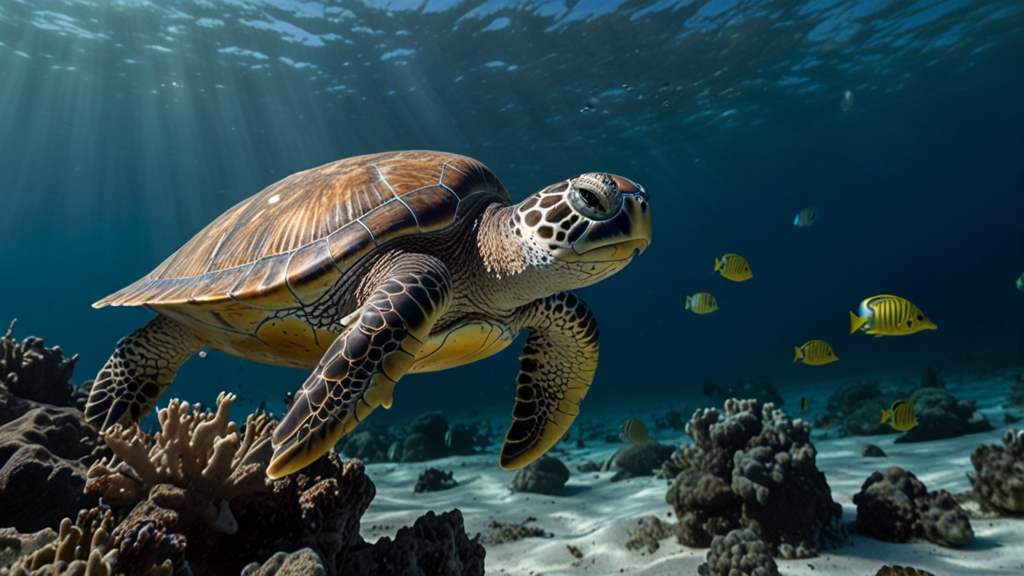Whales, Sharks, and Rays: Protecting Our Ocean's Gentle Giants
The ocean's depths are home to some of the most awe-inspiring creatures known to humankind—whales, sharks, and rays. These majestic giants play critical roles in maintaining the health of marine ecosystems, yet they face numerous threats that jeopardize their survival. This article delves into why protecting these gentle giants is essential and explores measures being taken to ensure their preservation.
The Ecological Importance of Whales, Sharks, and Rays
Whales, sharks, and rays contribute significantly to the balance of marine environments. Whales, for instance, are known to be ecosystem engineers. They help in nutrient cycling by moving between different ocean layers and through the enormous quantities of plankton they consume. Their massive bodies also provide food for scavengers when they die and sink to the ocean floor—a process known as "whale fall."
Sharks, often misunderstood and feared, are apex predators that help keep fish populations in check. By preying on the weak and sick, they ensure that fish stocks remain robust. Their presence signals a healthy ecosystem, as they maintain the balance between different marine species.
Manta rays and other large ray species similarly contribute to the ocean's health. Their feeding behavior helps control plankton populations, and they themselves serve as a food source for larger predators. Moreover, their migratory patterns contribute to nutrient distribution across vast ocean areas.
Threats to Ocean's Gentle Giants
Despite their ecological importance, whales, sharks, and rays face numerous threats. Commercial whaling, though reduced, still exists in some parts of the world. Additionally, ship strikes and entanglement in fishing gear pose ongoing dangers to whale populations.
"Every year, millions of sharks are killed for their fins, a practice that has led to dramatic declines in shark populations worldwide. The demand for shark fin soup, a delicacy in some cultures, has driven this senseless slaughter." – Marine Conservationist
Notably, the decline of shark populations has far-reaching implications, including increased marine biodiversity loss and disruption of food webs. Manta rays and other rays are not exempt from human impact either. Bycatch in commercial fisheries is a significant threat, along with targeted hunting for their gill rakers, used in traditional medicine.
Conservation Efforts and Success Stories
Recognizing the importance of these species, various organizations and governments are working tirelessly to protect them. International agreements like the Convention on International Trade in Endangered Species (CITES) have been effective in regulating the trade of marine species products. Marine Protected Areas (MPAs) are also being established to offer safe havens where these giants can thrive without human interference.
"Marine Protected Areas are crucial for the conservation of large marine species. These zones not only provide sanctuary but also allow for the replenishment of fish stocks and offer opportunities for education and scientific research." – Oceanographer
Citizen science and public awareness campaigns have also proven beneficial. Whale watching, for example, has turned into an eco-friendly industry that promotes conservation by educating people about these magnificent creatures. Similarly, dive tourism focused on sharks and rays can generate income for local communities while fostering an appreciation for marine life.
Looking Ahead
There is still much work to be done to ensure the survival of whales, sharks, and rays. Enhanced international cooperation, stringent enforcement of existing laws, and continued research are essential steps in this journey. Involving local communities and stakeholders in conservation efforts can also ensure that these initiatives are sustainable in the long term.
Protecting our ocean's gentle giants is not merely a task for scientists and activists; it is a responsibility that rests on all of us. By making informed choices and supporting conservation efforts, we contribute to the preservation of these extraordinary creatures and the health of our planet's oceans.
The beauty and majesty of whales, sharks, and rays serve as a reminder of the incredible biodiversity our oceans hold. Ensuring their protection means preserving the intricate balance that sustains marine life, which ultimately supports us all.





